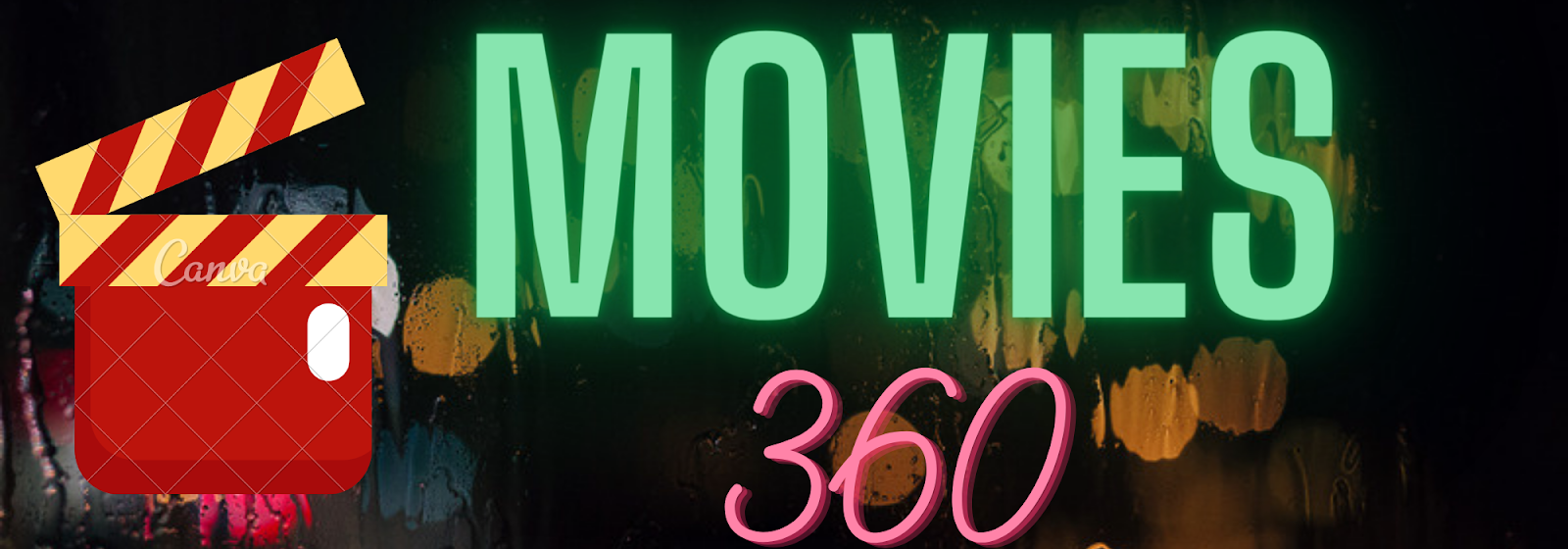Content Warning: This article may contain videos that violence, graphic references, and profanity
The Suicide Squad has proven to be one of the DCEU's most popular films, with the spin-off show, Peacemaker, garnering another series recently, with James Gunn also confirming that more ideas are in the works.
One of the elements that audiences specifically liked about the Suicide Squad follow-up is that it failed to follow the usual tropes of DC filmmaking. From the humor to the visuals and everything in-between, The Suicide Squad created a unique tone and feel that ultimately contributed to allowing it to walk its own path. The DCEU will continue to evolve with the recent Discovery merger and The Suicide Squad should absolutely be a project that executives look to when plotting out the next phases.
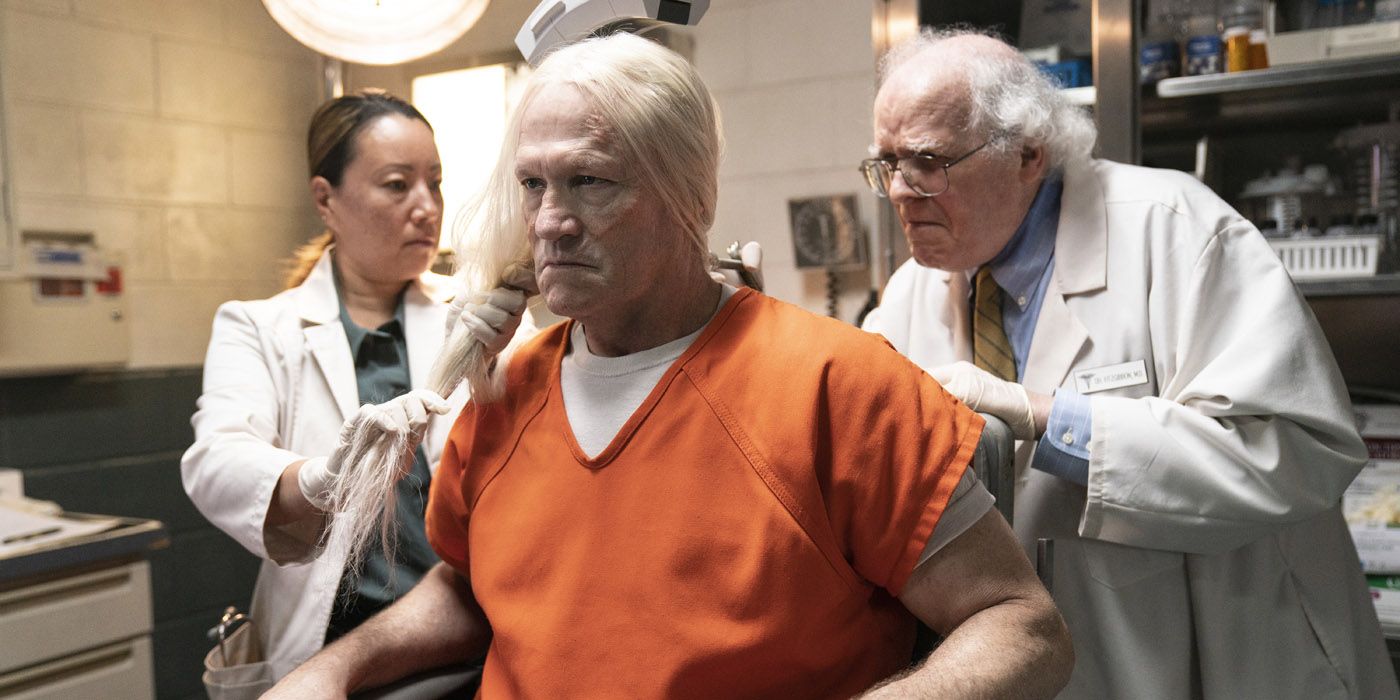
Heading into a film from the DC Universe, it's usually pretty much set who the leader of the piece will be. Often, their name is literally the title of the picture. However, for The Suicide Squad, the ensemble set up meant that the movie could play around with audience expectations.
While there was a general idea of who the protagonists could be when the casting announcements and early trailers were released, the introduction of the piece brought in an interesting idea. As astronautvibes puts it, "Savant being portrayed as the focal member of the first team and coming across like a grizzled veteran, only to then cry, bail and be the one to get their head blown up was fantastic." Nobody saw that one coming and it shifted what audiences thought was going to happen, with Savant as the leader.
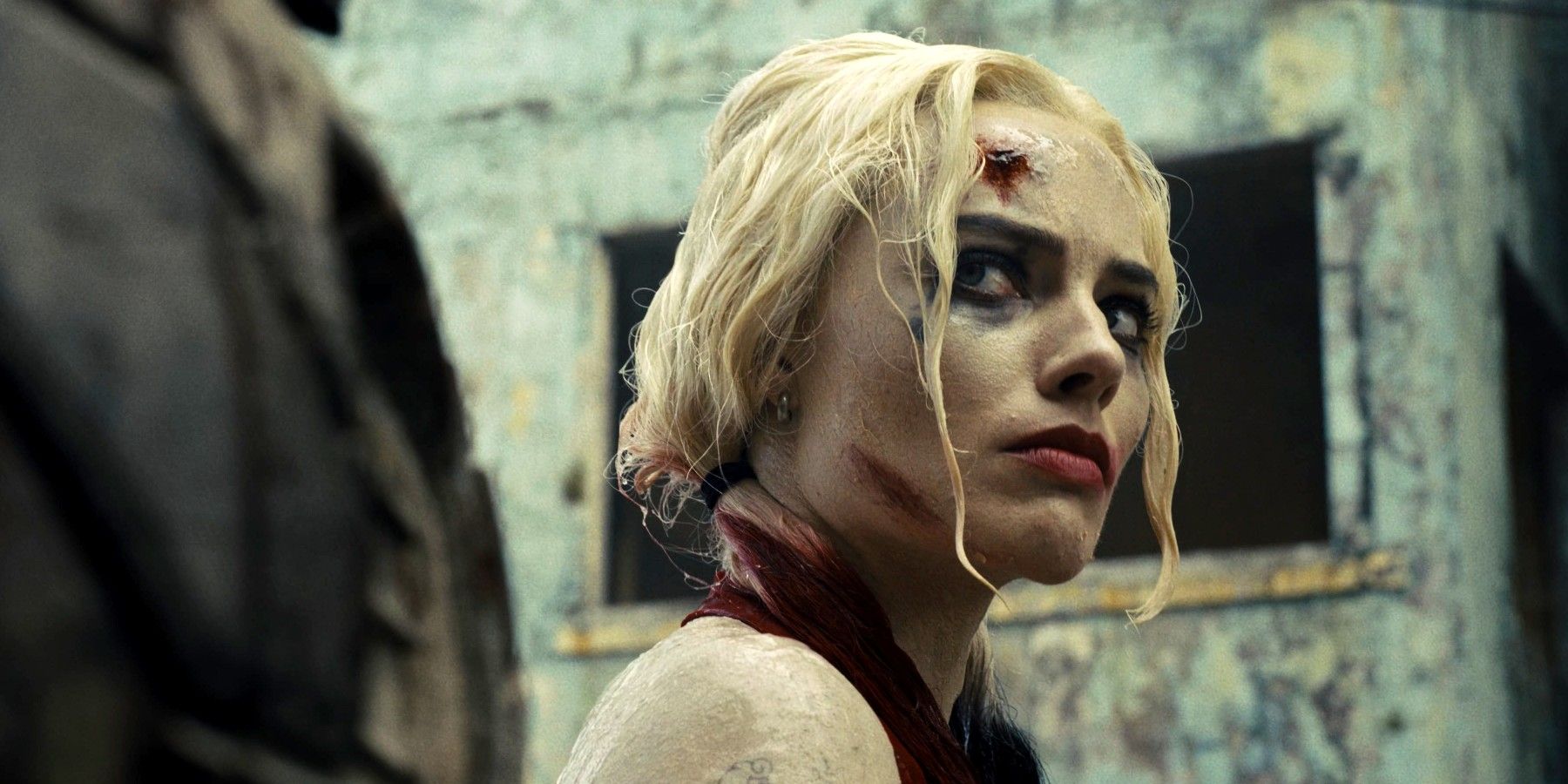
Birds Of Prey (And The Fantabulous Emancipation Of One Harley Quinn) was another DCEU project that went completely against the tropes of the DCEU. Luckily for fans of the film, The Suicide Squad did something quite uncharacteristic for the franchise and paid off an arc from the film.
The DCEU films all feel very standalone. There are very few instances where character narratives actually connect across pictures. Harley Quinn's return and murder of her fiance, in particular, should get a mention; as dubiouscoat states, they "loved how it was portrayed that Harley was avoiding toxic relationships but not in a normal way, in a Harley Quinn way," concluding her Joker-centric story.
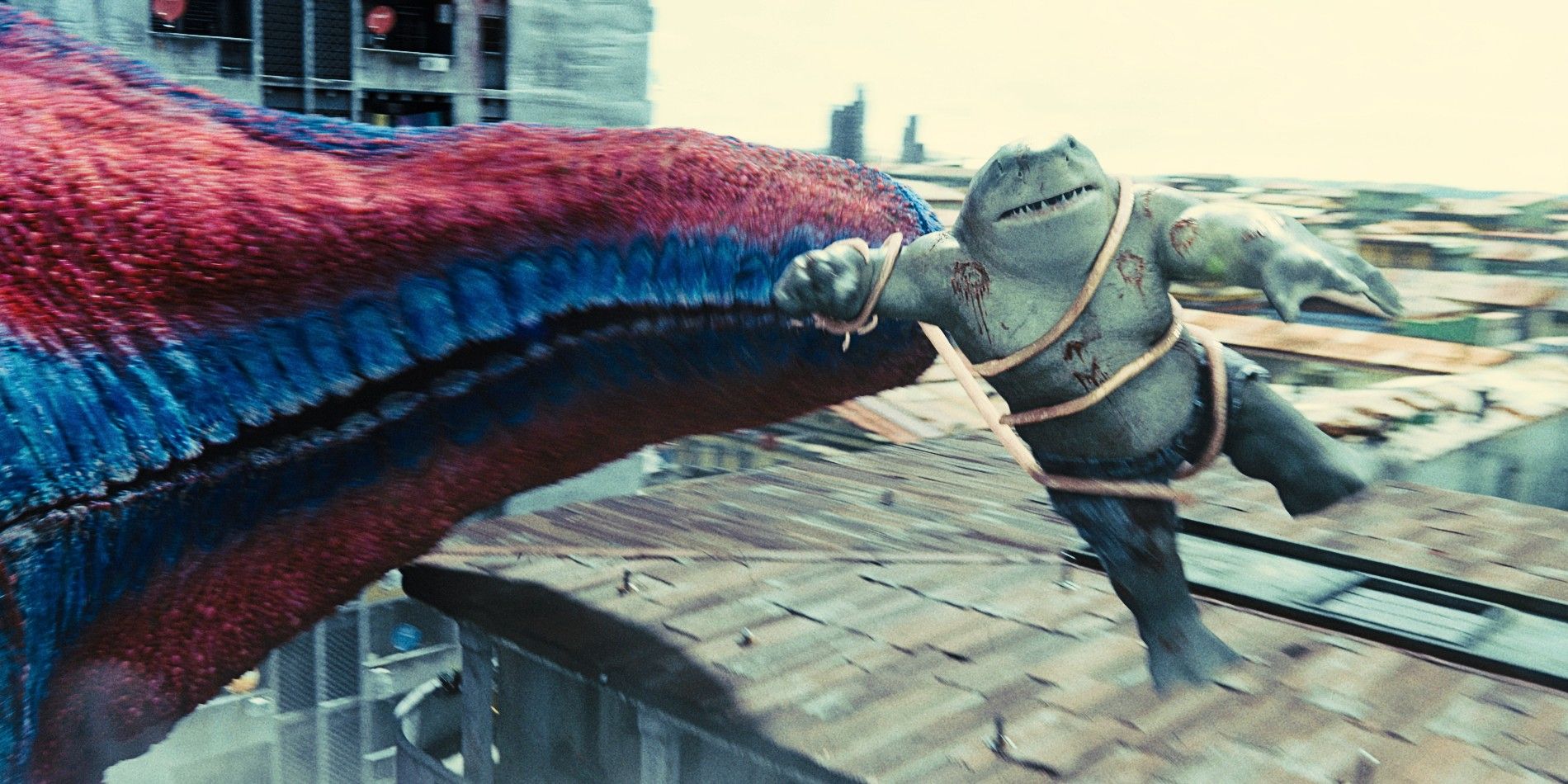
It's certainly a criticism that's been levied at Marvel Studios as well, but it's become slightly common to expect cartoonish CGI from DCEU movies. It's a common trope that the final act has a computer-generated villain that doesn't feel all that real within a scene. However, Starro and King Shark went against the trends.
jagdfuji said "huh, I just realized at no point did I go: oh King Shark looks fake. Damn this movie's CGI is good." This was followed up by McCheesy22, who noted that it was "Hugely refreshing to see [...since they] feel like every other recent superhero movie (Marvel) has underbaked effects and incredibly obvious blue screen considering the budget they’re working."
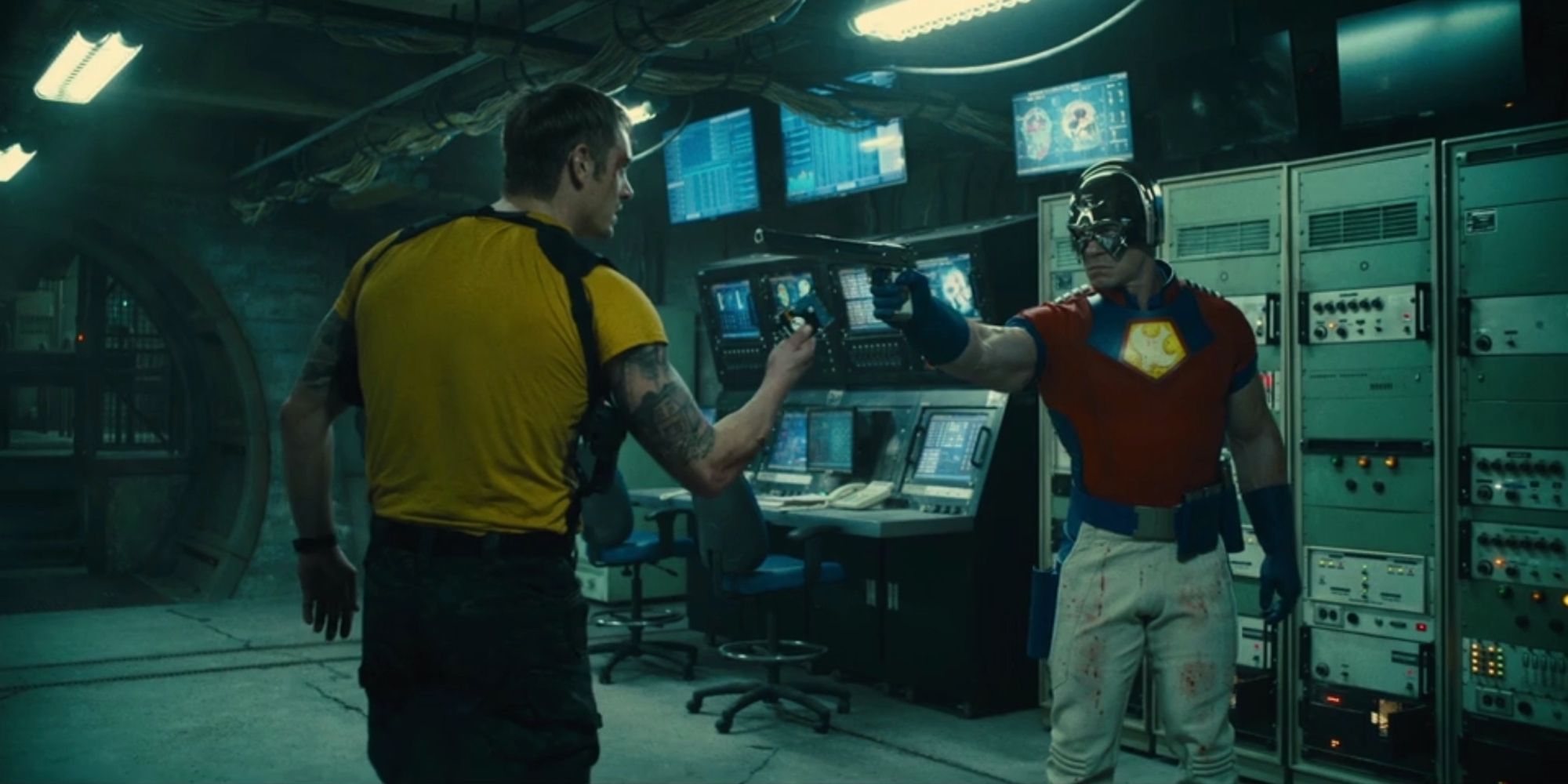
DCEU films are known for being dark and gritty. There are certainly moments of violence as well. But when looking at heroes like Aquaman, Superman, and Wonder Woman, they don't get their hands bloody. They are beacons of hope after all. However, The Suicide Squad and its R rating flipped the script.
There were numerous sequences that demonstrated just how far the violence would go here. as Nschl3 remembered one specific scene, saying "That bit with Peacemaker walking by the sleeping dude and stabbing him a half dozen or so times was brutal." The Peacemaker HBO Max show signifies Warner Bros. is happy to keep leaning into this break from the normal.
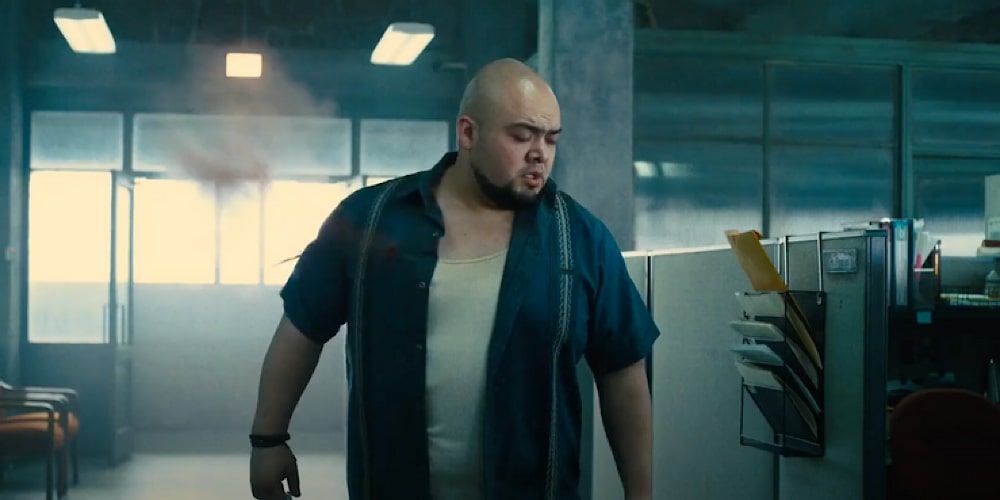
For the most part, supporting characters in DCEU films are forgettable. There are a few standouts that aid the key hero on their journey, but usually, if they're not called Alfred they aren't really featured. Peacemaker demonstrates just how strong the supporting cast is, considering plenty of the A.R.G.U.S. agents have extended roles in the HBO Max series.
But even down to the comedy characters, James Gunn created a group that really sold the narrative, in both a hilarious and tragic way. mrbrinks points to another excellent supporting role. "Milton was so... funny. I remember seeing him run into the tower after the rain scene and thinking what in the world is he doing? Why is this minor character still with them?" Of course, the payoff was absolutely worth it.
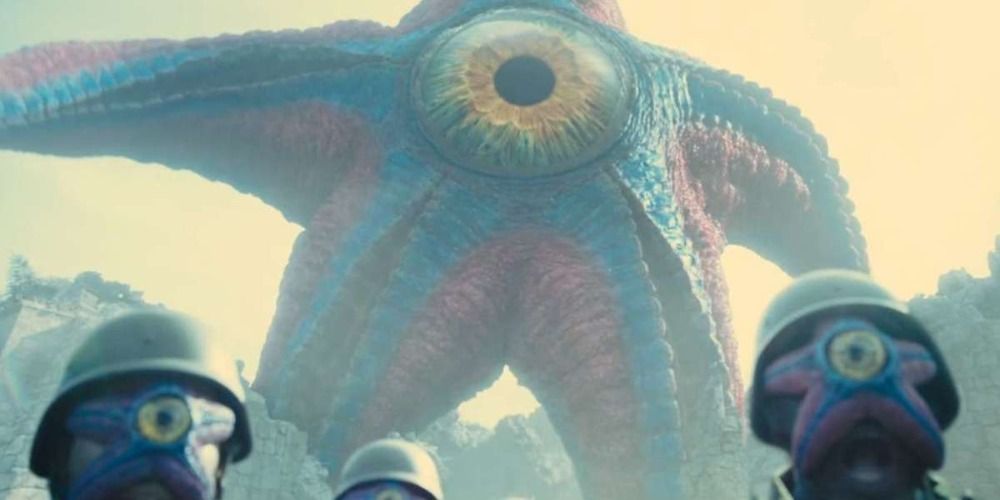
The DCEU has always added a layer of realism. It's rare that they tackle a story or a character that feels completely unadaptable. There's a reason that the majority of their pictures have been a little bit more grounded. When looking at the comics, Starro certainly isn't the type of foe the movies would utilize.
The alien doesn't exactly compare in a line-up of the likes of Black Mask, Deathstroke, Lex Luthor, and Zod. Mcclane88 said that "It’s kinda surreal. Never thought I’d see a live-action Starro." psl26 went further stating that "And James made no effort to make him a 'cool' movie monster. Just a pink and blue horrifying mess of a thing."
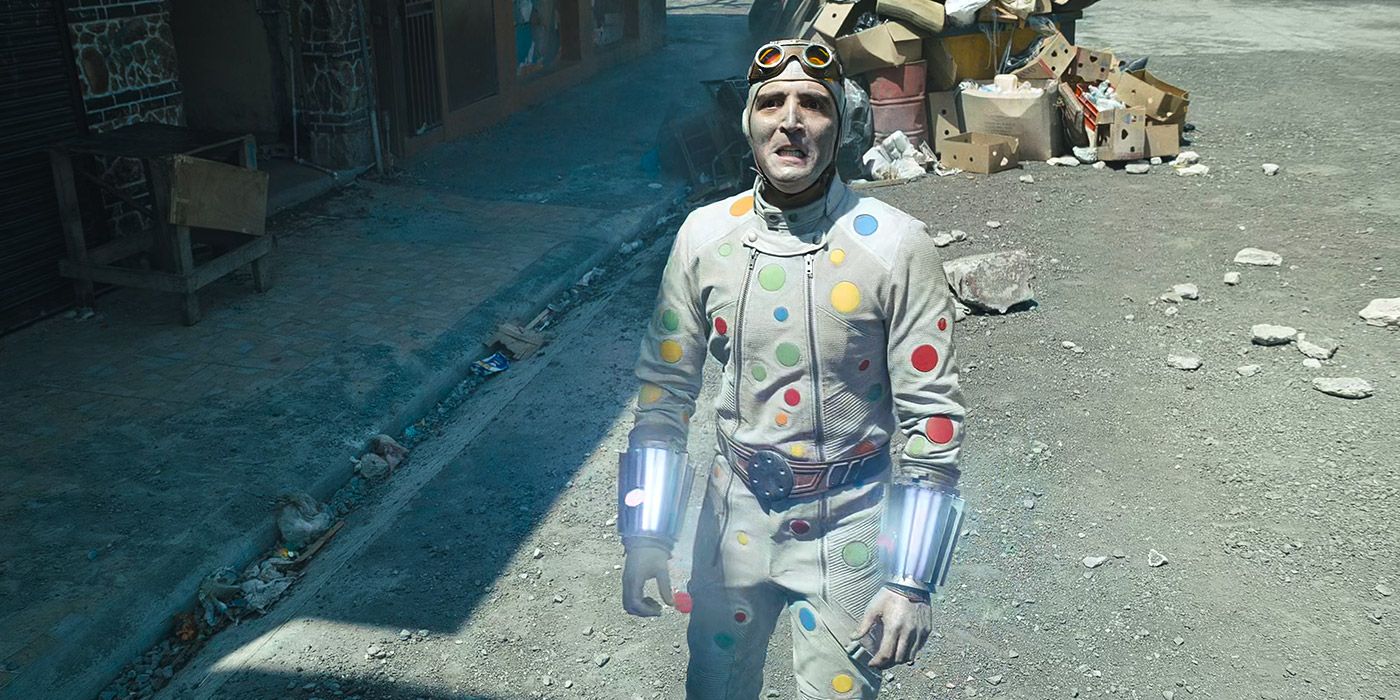
The concept that a villain can be redeemable isn't unique to The Suicide Squad. In the context of the larger DCEU though, it's rare to see a villain as a victim in the grand scheme of things. From Darkseid to Joker, there are not really any antagonists that the audience feels sorry for.
The Suicide Squad broke this trope with its core theme, something that Suicide Squad never quite achieved. One Reddit user broke it down by saying "Bloodsport and Peacemaker both groomed to be mercenaries from the day they were born," with another also calling Starro "a victim in all of this" after the audience saw the torment he underwent at the hands of those involved in Project Starfish. These are all perfect examples that show the complexity of these foes.
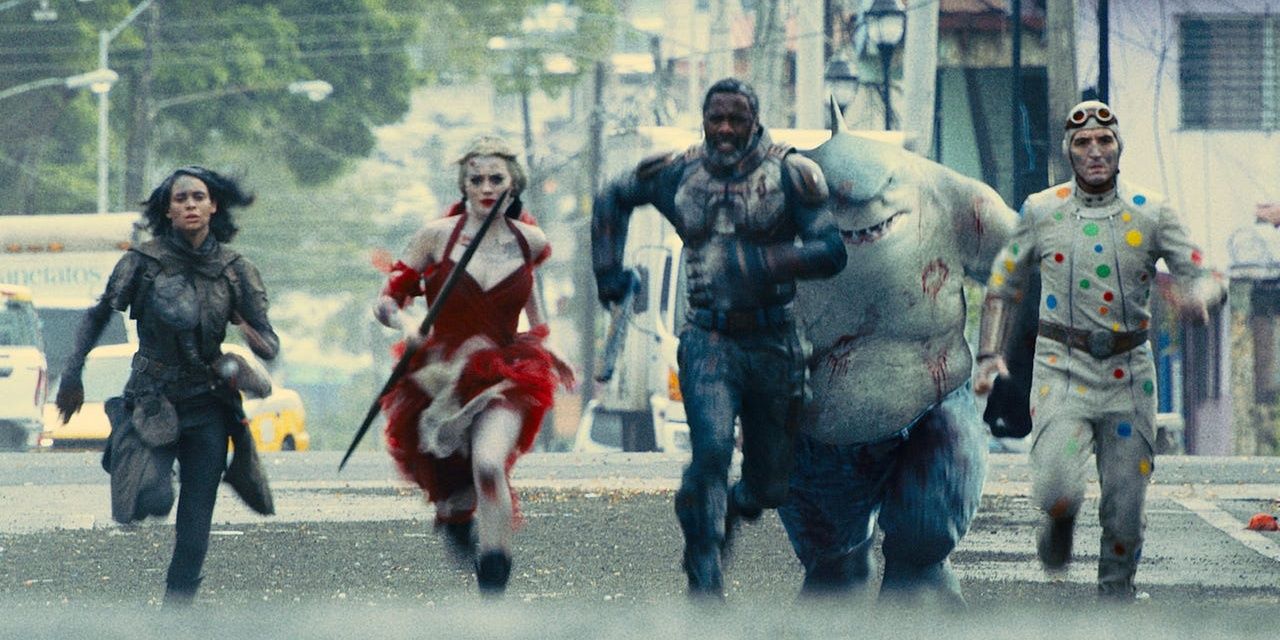
Where are DC movies often set? The chances are that the location is either Gotham City or Metropolis. Of course, there are exceptions, but those two backdrops are so common these days that it has become one of the DCEU's most familiar tropes. However, The Suicide Squad departed from the convention.
ashiakatamaki says it best with "Corto Maltese is such a great setting for this film. An island with a beach, a city, and a fortress is so 70s/80s action movie and it worked wonders." Tonally, it's a perfect fit and it strays from what viewers often see, demonstrating even a simple shift can make such a difference to the audience's perception.
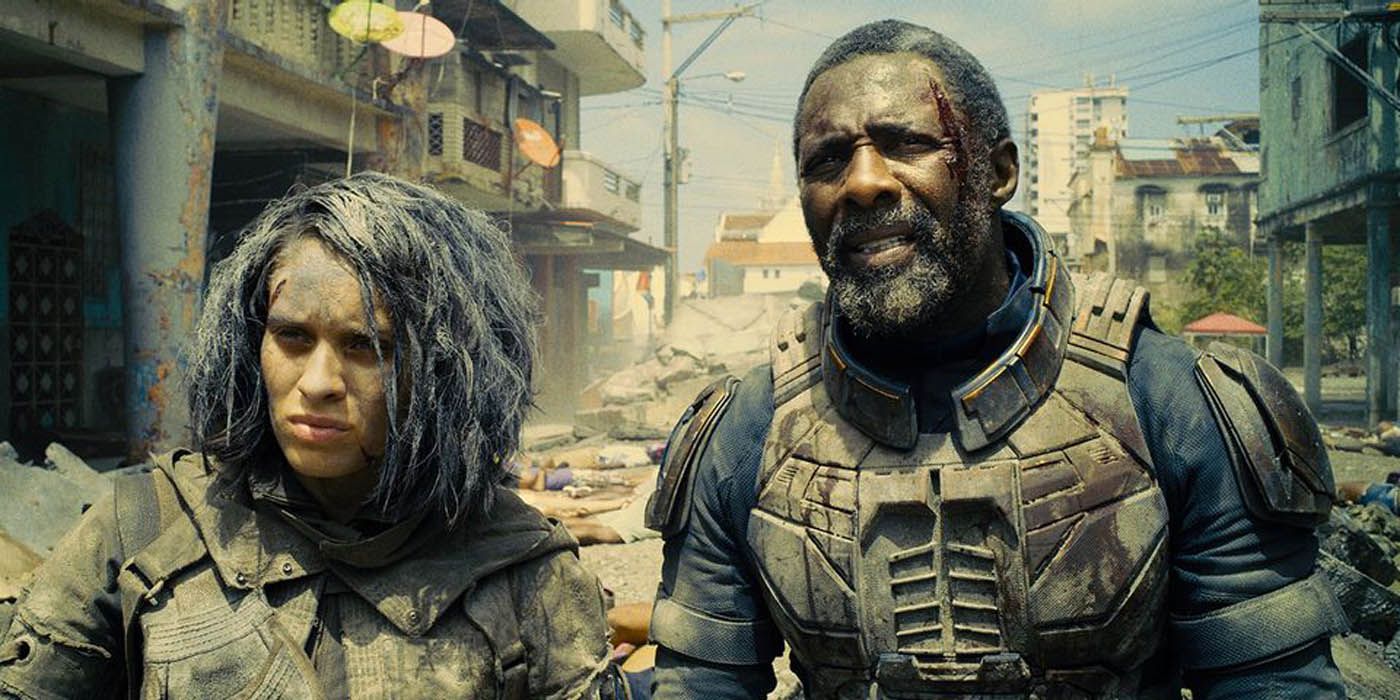
It really isn't common for the 'heroes' of a DC film to have any kind of flaw. Batman is perhaps the only character that seems to be struggling with inner demons. However, outside of this, there are no embarrassing facts or moments where a protagonist is truly portrayed as anything other than 'cool.'
This is so different for this James Gunn feature and Bloodsport is such a great example of this. amish_novelty summed it up by saying "Him admitting that exploding bullets were dope and he had a fear of rats were absolutely hilarious and made him far more relatable in a weird way."
The Suicide Squad doesn't follow the traditional DCEU formula and it's all the better for it!George Chrysostomou
